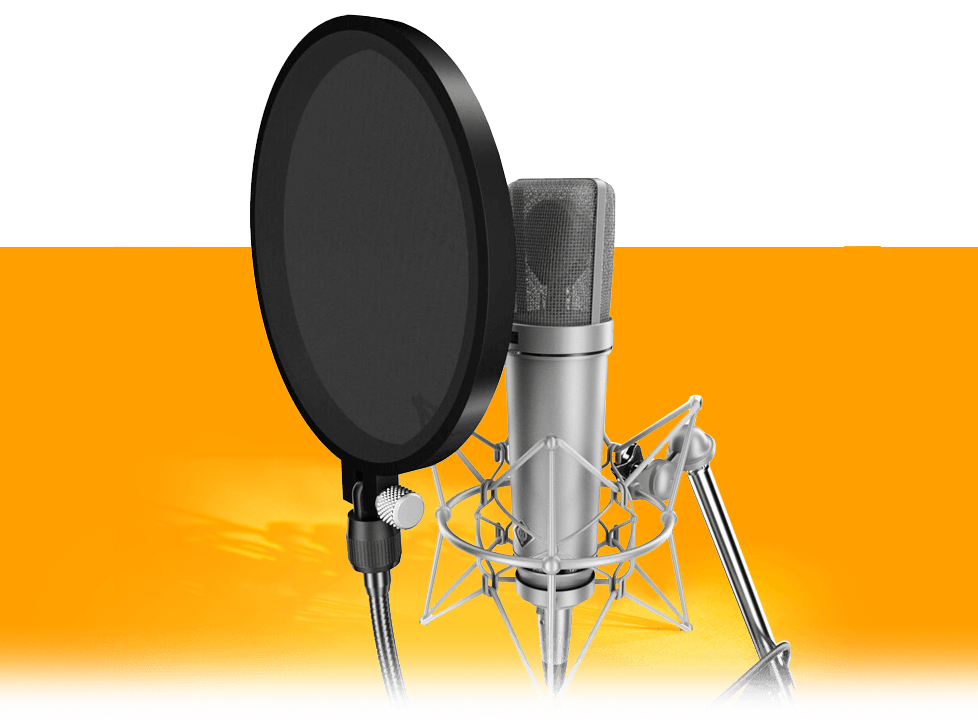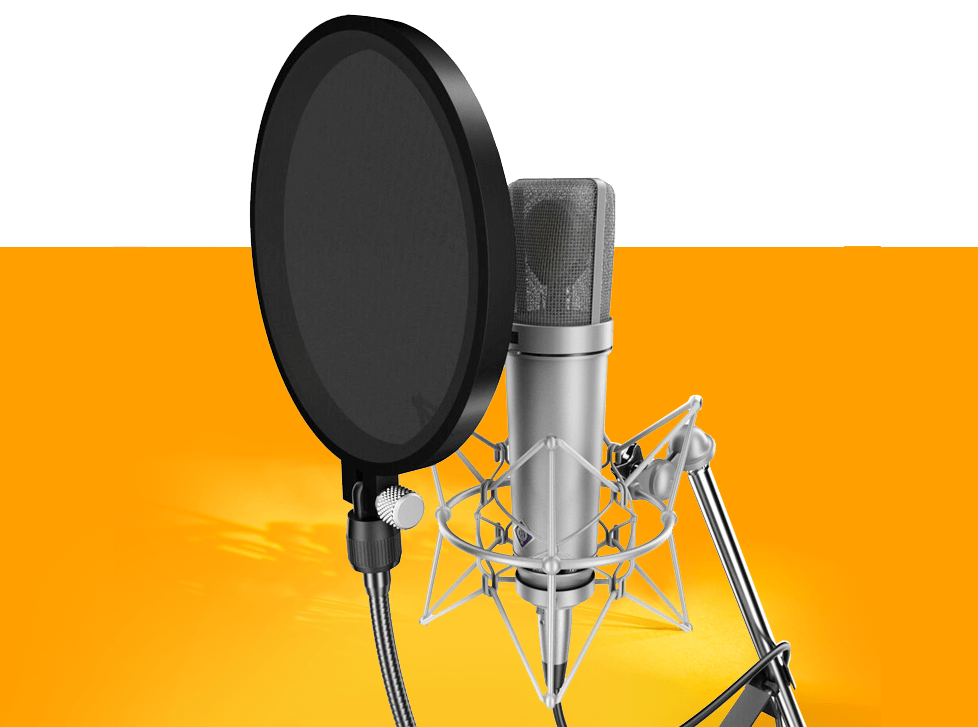What is a Sound Technician and What Do They Do?
Jeremy Alves | December 16, 2022
Working in music and sound production is an exciting industry that blends creativity with technical expertise to create a polished final product. For example, you might work with a recording artist on their next single or help a movie studio with the audio for their next blockbuster.
Along with the range of companies and industries needing audio experts, audio production itself has several essential roles, such as sound technicians.
Sound technicians play a vital role in the overall production of any audio project, ranging from a hit album to the evening news. You’ll work closely with engineers and producers to create a high-quality result.
What do sound technicians do throughout their day? How do they contribute to the final production? Keep reading to learn more about exactly what a sound technician does and how you can start pursuing a career in the technical side of audio.
What is a Sound Technician?
Sound technicians work side-by-side with audio engineers and music producers. Typically, sound technicians will handle the “nuts and bolts” of the project, such as properly connecting and configuring microphones, speakers, amplifiers, and other equipment.
A technician may also assist with post-production and take on other more advanced roles in the project. Technicians have similar responsibilities as engineers and apply sound engineering skills. However, technicians are generally in entry or mid-level roles compared to engineers.
Sound/Audio Technician vs. Audio Engineer: Is There a Difference?
You’ll often see sound technicians working alongside audio engineers, but they are distinct roles. The engineer will determine the overall technical aspects of a project, and the technician assists in configuring the individual components.
Working as a sound technician is a great way to advance your career and become a sound engineer. You may still need to complete a
sound engineering course, but it's often easier to find a job as a technician while you acquire real working experience.
Once you get some experience under your belt, you can seek higher-paying roles as an experienced technician or become a sound engineer. You may also be drawn to the more creatively-driven side of music production and decide to dive deeper into that side of the music industry.
The Many Roles of a Sound Technician
We touched on how sound technicians are found throughout several industries, but what specific roles will they take on? Some of the common jobs of a sound technician include:
- Utility Sound Technician: A technician works with TV and film production companies to record high-quality audio and often assists with post-production. Depending on the project, a technician's role may include engineering and production responsibilities. Live sound schools focus on the training you’ll need as a utility sound technician.
- Broadcast Technician: Radio stations require experienced technicians to make sure they’re broadcasting high-quality audio, regardless of whether it’s an AM talk show or a top 40 FM station.
- Recording Technician: Capturing high-quality audio from a vocalist or bands is essential when producing an album. These specialized technicians are experts in configuring, connecting, and placing recording equipment in a studio environment.
- Mixing Technician: Mixing requires balancing several individual recordings, so they merge together for a pleasing result instead of harshly overlapping. Depending on the project, music producers, audio engineers, and sound technicians can all be responsible for mixing.
- Mastering Technician: Like mixing, mastering is the final step in a project that fine-tunes frequencies and other adjustments before the project is ready for a commercial release. Mastering happens after mixing and requires a trained ear and knowledge of how the track will sound on different speakers and headphones.
Sound engineering programs impart the skills you’ll need for each of the above roles. In addition, you’ll gain hands-on experience in professional-grade studios. You may even be able to find an entry-level technician position while completing your program.
What to Expect from a Sound Technician Career
Before you sign up for sound technician courses, what will you learn, and what career can you expect upon completion?
We explored the different roles of a technician, which can be generally divided into three categories: pre-production, production, and post-production: Let’s explore how your training at a sound engineering college will prepare you for both and what you’ll do within them.
Working in Pre-Production
Pre-production is setting up the environment for capturing audio for everything from a concert to a studio session. There is plenty of setup involved in any audio project, and sound technicians play an essential role in this part of the overall process.
Some common roles in pre-production are:
- Analyze the acoustics of the environment to determine the best setup for equipment
- Position and adjust microphones, amplifiers, and speakers
- Communicate with the entire team to prepare for the production process
- Apply your technical skills to complement the artistic vision of the project
- Test and potentially repair equipment before production
While it can vary based on the project and industry, pre-production is when a sound technician is most involved with a project. You’ll take on configuring and testing everything involved in capturing audio before the artist or TV hosts arrive, levering your training to optimize quality and prevent issues.
Working in Production
Production ranges from a live show broadcast to recording audio for a podcast. Any task or responsibility that happens during audio capturing falls into the production category.
Live sound engineering courses focus heavily on a project's pre-production or production side. You’ll be tasked with making sure everything is ready to go before the project and making adjustments during production.
Typical tasks and roles in production include:
- Monitor the recording or transmission of audio to catch and correct any potential issues
- Identify sound-quality deviations or other malfunctions that may affect production
- Assist in starting and stopping recording sessions, providing feedback to the artist, engineer, or producer as necessary
Technicians are usually heavily involved in production to ensure the project stays on course. For example, you may need to expertly change a microphone’s positioning or swap out a better model, alongside re-configuring mixing boards or amplifiers as the production progresses.
Working in Post-Production
Post-production is often considered the realm of producers and engineers, but technicians can still play an essential role in the process. For example, combining individual recordings in the overall composition of a song, mixing channels, and mastering before release are all part of post-production.
A technician may take on the following responsibilities during post-production:
- Mixing different channels to create the intended result
- Synchronize finalized audio with visuals
- Assist in mastering before the project is finalized
- Create and modify sound effects
A technician's involvement in post-production will vary depending on the project and industry. For example, lower-budget projects may rely more on a technician, while large-scale projects often have producers and engineers taking on most of the post-production work.
Don’t Skip the Soft Skills
Working as a sound technician focuses on the technical aspects of audio, but you’ll also work closely with your team. You’ll almost certainly have time to work alone, but developing your soft skills alongside your technical training is crucial.
Every role in the audio industry requires soft skills, and sound technicians are no exception. Soft skill is a term that describes your interpersonal skills, at-work behaviours, and personality traits. Essential soft skills for a sound technician include:
- Communication: A sound technician regularly takes directions from engineers, producers, artists, and set managers — often all on the same project. It’s important to understand what’s being asked of you and take criticism well.
- Critical thinking: People drawn to the technical side of sound will often already have strong critical thinking skills, but it’s essential to be aware of room for improvement. Thinking about a project when it’s over can help you reflect on any issues you could’ve prevented.
- Adaptability: You can safely assume a project will change during any phase, from pre-production to post-production. It’s vital to be able to adapt both your mentality and the technical setup on the fly. Similarly, you should be able to keep a cool head when unexpected challenges arise.
Improving your soft skills takes time and effort, but fortunately, you can work on it throughout your personal life and professional career. Therefore, take it upon yourself to reflect on any challenges related to soft skills and learn how to overcome them.
Start Your Sound Technician Career with OIART
Sound technicians are responsible for various vital tasks and roles within a project. Your responsibilities will vary based on the industry, project, and stated role. Additionally, it’s common for engineers or producers to start their careers as technicians, while others will find fulfilling careers as experienced technicians.
The Ontario Institute of Audio Recording Technology (OIART) offers programs to prepare you to start your career as a sound technician, producer, or engineer. Ready to explore our industry-recognized courses?
Apply today to get started or learn more about what we offer.
Ready to Start?
OIART's Audio Program Includes:
✓ Small Class Sizes
✓ On Site Facilities
✓ Industry Leading Instructors
✓ Post Grad Support & Guidance
✓ Exclusive 11 Month Program
Top Reasons Why You Should Choose OIART.
Have Questions?
If you have questions about our audio engineering and music production program or would like to book a tour, we would be pleased to speak with you.
Text Us: 519.200.4151
Share This With a Fellow Music Lover
Apply in 4 Steps!
Step 1: Click apply now.
Step 2: Answer 8 questions about yourself.
Step 3: Upload supporting documents.
Step 4: That's it! You are done.
Share this with fellow music lovers


